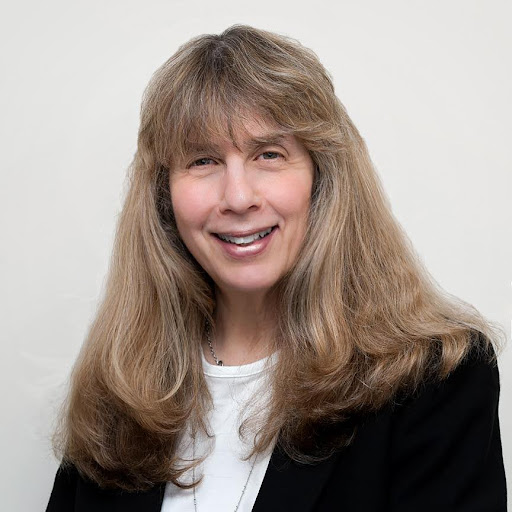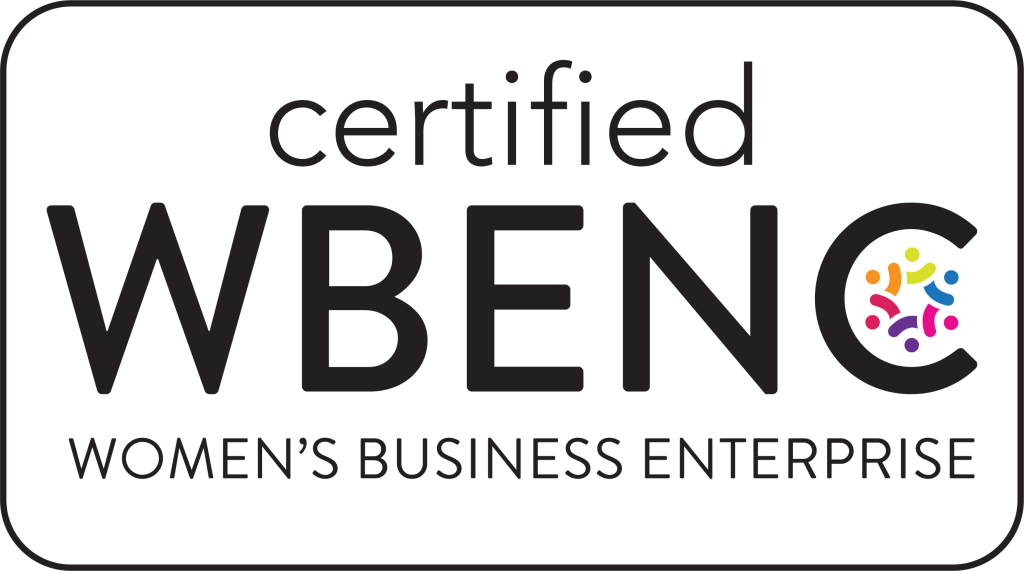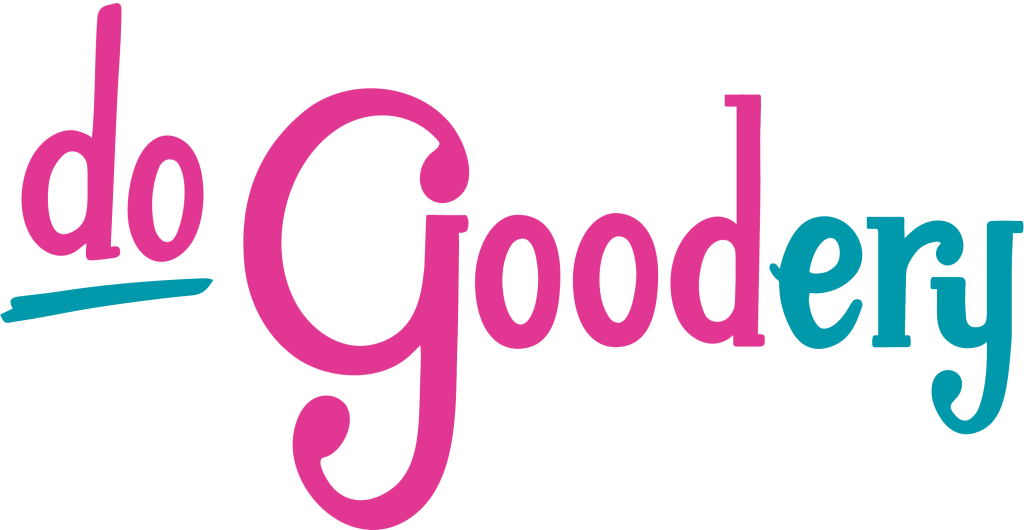
Our Interview with Judy Braus
This month, we are so thrilled to share our interview with Judy Braus, Executive Director of the North American Association for Environmental Education (NAAEE). She opened up about her childhood passions and what she’s learned through her decades-long career in environmental education.
Let’s dive in with Judy!
DoGoodery: Please introduce yourself and give us a brief background on who you are and what you do.
Judy: Thanks so much for having me. I’m thrilled to be here and love what you do. My name is Judy Braus and I’m the Executive Director of the North American Association for Environmental Education or NAAEE as we call it. Our organization is all about advancing environmental literacy and civic engagement to create a more just and sustainable future. I work with a talented and passionate team and board, and we have a wonderful network of educators from all sectors—universities, pre-K through 12 teachers and administrators, nonformal educators at zoos, aquariums, museums, and nature centers, government agency leaders, corporations and others who care about the environment, education, justice, and social issues.
I’ve been in the field of environmental education for more than 4 decades! And I have been super lucky in each of the places where I’ve worked. I helped lead education initiatives at the National Wildlife Federation, the US Peace Corps, World Wildlife Fund, and the National Audubon Society before coming here. In all my jobs, I’ve focused on the connection between education, conservation, and equity and how we can do more to protect the environment and help people and communities thrive. I’ve learned so much in each position, and the best part has been building networks that have provided insight and support throughout my career.
DoGoodery: Do you have any early, formative memories of the outdoors that may have inspired your passion for environmental education? Is this career path what you envisioned for yourself?
Judy: I grew up outside of Cincinnati, and I have three brothers, and my dad was a chemist and my mom was an artist and we went on Sunday hikes with the local park naturalist, Warren Wells. All my friends went to church, and we would be out on hikes instead! I could identify a lot of the local plants and animals by the time I was in elementary school. And that helped me get summer jobs as a seasonal naturalist with the Ohio Park system. I was also really into music (one of my brothers is a professional violinist and we all played instruments. Mine was the cello.) Cincinnati was also a very conservative city and there were a lot of issues with race and equity. So I knew I wanted to do something with the environment and justice. My parents were also pushing for equality and taught us to respect and care for nature, other people—especially those who might not have what we have, and to always get engaged to make a difference. So I wasn’t sure what I would end up doing, but knew it would be a mix of nature, equity, policy, and/or music. I remember one of my brothers saying you’ll never make a living if you think about a career in the environment, but I think I proved him wrong.
DoGoodery: Since you have decades of experience in environmental education, how have you seen the field evolve over the years?
Judy: I have been in the field a long time and some things have definitely evolved and changed, and some things are the same. I’d say the past 4 decades environmental issues have only gotten more pressing—from the impacts of climate change and pollution to the loss of biodiversity. There’s also been much more of a focus on supporting humans and nature, not just nature at the expense of people and their livelihoods. I’d also say that the issues we face have become super politicized in the US and in other parts of the world, although there are some countries where protecting the environment isn’t as much of a political issue as it is here. We know that this work needs to be interdisciplinary and that we need all voices and perspectives at the table—nature doesn’t work in silos the way we do.
Some of the good things that have happened include more of a focus on justice, equity, diversity, inclusion, and accessibility. It’s always been important, but it has really been integral to the work of organizations like NAAEE, and we think about equity and inclusion and accessibility in pretty much all that we do. We can’t address environmental issues without also addressing social equity and shared prosperity.
I would say educators are still the same passionate and committed people I’ve always worked with. I am in such awe of teachers, for example. They do so much with so little and the demands from society are huge. People choose a career in education because they care about the world and want to make a difference. Many are underpaid and under supported, and yet, they still go at it every day.
Another big change is the role of technology in all we do. During the pandemic, everyone shifted to virtual learning and using new tools to help connect online. Virtual learning complements what we’re doing. With AI and other advances, we will need to continue to think about how technology influences our field and how it impacts education overall, as well as the environment.
DoGoodery: Some critics argue that environmental education hasn’t led to significant behavior change on a large scale. What’s your response to that? Do you believe environmental education truly works to create a lasting impact?
Judy: I think education is one of the most powerful opportunities we have to create positive change. I have personally seen education change lives. It can change worldviews and inspire action. Education helps people understand systems, learn how change happens, understand how the world works and how to get more engaged in civic life—individually and collectively. When someone says education doesn’t create lasting impact, I think anyone working at DoGoodery and NAAEE or so many places wouldn’t be where they are without a high-quality education. We believe that access to high-quality education is a human right for everyone, young and old and no matter where you live. It’s a journey and it can provide immediate impact, like cleaning up a river or restoring habitat, or longer-term change by creating a stronger workforce, a better-informed global citizenry, and more. Education helps people see a path forward, whether it’s a career path or the inspiration to get involved or a new way of seeing something.
One of the biggest issues is that environmental education is completely underfunded in our society and in many parts of the world. EE gets a fraction of the funding it needs, yet our lives depend on it. Without a healthy environment, none of us would be able to survive. We all need clean water, clean air, and healthy, biodiverse systems. And we’re watching a lot of systems break down with climate change, the increase in human populations, lack of support for addressing the issues, and the fact that so many people are suffering from lack of resources and the power to create change. We also know that institutional racism slows down all that we do, and we have a moral imperative to ensure that everyone has a say in decisions that impact their lives and that they have opportunities to lead. We need more support for environmental education and to make sure that the professionals in our field can earn a living wage, which isn’t happening in many parts of the country and around the world.
Environmental education is all about helping people gain the knowledge and skills and the motivation to create positive change. If you care a lot about an issue and have the skills to address the issues, but you don’t do anything, then the world hasn’t moved forward. We want everyone to get engaged, individually and collectively, and do what they feel is important for their families, their communities, and their values.
DoGoodery: In a time of increasing environmental crises, what role does environmental education play in creating a more sustainable future? Are we doing enough to engage younger generations in these efforts?
Judy: Education is about lifelong learning, from our preschoolers to our seniors. Education helps create system thinkers and build the skills and caring that can help us tackle the issues we face now and the issues we don’t even know will be coming up in the future. Environmental education also brings hope. We are about helping people not just understand issues, but feel like they really can make a difference. It’s such an important message when people might be feeling anxious about the future. We aren’t about telling people what to do, but we are about helping people feel like they can do things and build the skills and mindset to get involved.
And, no, I don’t think we are doing enough to support young people. They are incredibly engaged and I am amazed by young people every day, but we should be doing so much more to support them. We should be investing in young people because they are already leading and coming up with really creative solutions. The more we support our young leaders, the more we can build a stronger and more environmentally literate global citizenry that cares about these issues and knows how to tackle them. Our young people need access to high-quality environmental education now more than ever.
We also need much more support for the educators and administrators, nonformal educators, and those working to educate adults. And we also need to provide more support for early childhood education. We know how important it is to give kids that head start and how important brain development is during these early years. And preschool educators are some of the lowest paid professionals in society. And they have THE MOST IMPORTANT JOB. For many, they don’t earn a living wage. It really doesn’t make sense.
Our tagline is “Education We Need for the World We Want” and we’re always trying to think about what is going to help us create a better, more equitable world that allows people and nature to thrive.
DoGoodery: What’s the most challenging aspect of leading an organization like NAAEE in today’s complex environmental landscape?
Judy: I think running any organization has its challenges, and especially running a small NGO. There are always a million things to do and think about. Of course, I’m always worried about fundraising and making sure we’re doing all we can to advance the field while also addressing equity and inclusion and some of the really complicated and complex issues, like climate change. It’s challenging to stay up on all the overlapping issues, from climate and loss of biodiversity, to research in education, writing and editing trends, technology, and more. Because EE is a broad umbrella, it’s easy to bite off more than we can chew, but we have a fantastic team, and I love the professional development aspect of what I do, as well as team building and leadership development. I’m always trying to make sure everyone is OK and has a work-life balance and is happy with what they’re doing. I’m super lucky because I work with a spectacular team. The people you work with make all the difference.
I always hope we are doing work that is helping society and pushing our field forward and leaving a positive footprint in the world. We can’t do everything, but I hope what we do is high-quality and makes a difference.
DoGoodery: Tell us about the upcoming NAAEE conference. What are you most excited about?
Judy: This is our 53rd Annual Conference and I’m super excited to be in Pittsburgh and have so many amazing people gathering. Our conferences are all about learning, networking, and sharing new ideas, and we have hundreds of talented people, speakers, and presenters sharing what they’ve learned and how we can replicate effective practice. We’re expecting more than 1,000 people and I hope many of the people reading this will join us in Pittsburgh. It’s one of the most uplifting events because everyone is there to learn and share, and all are passionate about making a difference in the world. And our colleagues in Pittsburgh have been amazing!
We also have some fantastic plenary speakers, including two local authors from the Gable Foundation who wrote a book on the teachings of Mr. Rogers and what we’ve learned about education that nurtures communities. Mr. Rogers’ long-running TV program was based in Pittsburgh. Dr. Vik Mohan is a pediatrician and a conservationist and will be speaking about how we can save ourselves and save the planet. We also have Dr. Grethel Aquilar, the Director General of IUCN, and the head of the Jane Goodall Institute, Anna Rathmann, and so many others. We have more than 250 sessions during the week, along with meetings, special sessions, and fun excursions to get to know Pittsburgh. I always learn so much and get to be inspired over and over again from interacting with our attendees.
DoGoodery: Finally, what message or call to action would you like to pass on to the next generation of environmental educators and leaders?
Judy: I would say there are 5 things that could truly help push us forward:
- Always be kind and help each other. The more we can be empathetic and help others, especially those who have less than we do, the better off we all will be. And to realize that it’s important that everyone has a seat at the table and can weigh in on the issues that affect them.
- Get involved in civic life, individually or collectively. Stand up for the issues you care about and that others care about and get engaged. It’s not just voting, although voting is critical in a democracy. Civic engagement includes all the ways you can help create healthier communities.
- Be open to new worldviews as you hear new information and learn new things. And be willing to say I don’t know or I made a bad decision and now have better information.
- Support educators and the important work they do with all ages, from cradle to gray. Educators are a gift to society and should be thanked for all they do to make the world a better place. People are our biggest resources, and the more we can do to support learning and caring and doing, the better.
- Take care of yourself in the process of saving the world. You can’t do what you were meant to do if you’re burned out or suffering.
And finally, I love the quote from Michelle Obama, who said “don’t ever make decisions based on fear. Make decisions based on hope and possibility.”
I really do feel that we can keep making progress, no matter what gets in the way. Education can open doors and minds, it can build confidence, it can help develop interpersonal skills, and it can truly transform lives and communities. We just have to never give up!
Stay in the loop!
DoGoodery LLC
1370 N St. Andrews Pl,
Suite B19
Los Angeles, CA
90028
hello@dogoodery.com

